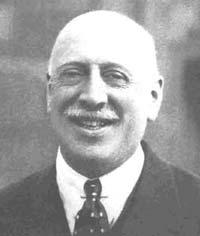Charles Simeon Quotes

Charles Simeon (1848). “Memoirs of the Life of the Rev. Charles Simeon, Late Senior Fellow of King's College and Minister of Trinity Church, Cambridge: With a Selection from His Writings and Correspondence”, p.474
Charles Simeon (1833). “Horae homilecticae: or discourses (principally in the form of skeletons) now first digested into one continued series, and forming a commentary upon every book of the Old and New Testament; to which is annezed an improved edition of a translation of Claude's essay on the composition of a sermon...”, p.352
Charles Simeon (1838). “Claude's Essay on the Composition of a Sermon: Together with One Hundrer Skeletons, Being the Substance of Sermons Preached Before the University”, p.196
Charles Simeon (1847). “Memoirs of the Life of the Rev. Charles Simeon ...: With a Selection from His Writings and Correspondence”, p.654
Charles Simeon (1847). “Memoirs of the Life of the Rev. Charles Simeon ...: With a Selection from His Writings and Correspondence”, p.654
That however advanced any man may 'be-in' age or piety, he is still in danger of falling.
"Horæ Homileticæ: Or Discourses".
Charles Simeon (1848). “Memoirs of the Life of the Rev. Charles Simeon, Late Senior Fellow of King's College and Minister of Trinity Church, Cambridge: With a Selection from His Writings and Correspondence”, p.60
Justification by faith alone, is the hinge upon which the whole of Christianity turns
Charles Simeon (1833). “Horae Homileticae: Or Discourses (principally in the Form of Skeletons) Now First Digested Into One Continued Series, and Forming a Commentary Upon Every Book of the Old and New Testament; to which is Annexed, an Improved Edition of a Translation of Claude's Essay on the Composition of a Sermon: In Twenty-one Volumes. Galatians-Ephesians”, p.13
Charles Simeon, William Carus, Charles Pettit McIivaine (Bp.), Daniel Wilson (1847). “Memoirs of the life of the Rev. Charles Simeon ...: with a selection from his writings and correspondence”, p.518
Charles Simeon (1847). “Memoirs of the Life of the Rev. Charles Simeon ...: With a Selection from His Writings and Correspondence”, p.695
Charles Simeon (1802). “Helps to Composition, Or, Five Hundred Skeletons of Sermons: pt.1. Sermons CCCXLIII through CCCCLXXIII”, p.709
Charles Simeon (1847). “Memoirs of the life of the Rev. Charles Simeon ...”, p.303
Charles Simeon (1833). “Horae Homileticae: Or Discourses (principally in the Form of Skeletons) Now First Digested Into One Continued Series, and Forming a Commentary Upon Every Book of the Old and New Testament; to which is Annexed, an Improved Edition of a Translation of Claude's Essay on the Composition of a Sermon: In Twenty-one Volumes. Galatians-Ephesians”, p.334
Charles Simeon, Jean Claude, Thomas Hartwell Horne (1832). “Horæ homileticæ, or Discourses, in the form of skeletons upon the whole Scriptures. [With] Appendix. (With indexes, prepared by T. H Horne). To which is annexed an improved ed. of a transl. of [J] Claude's Essay on the composition of a sermon”, p.17






